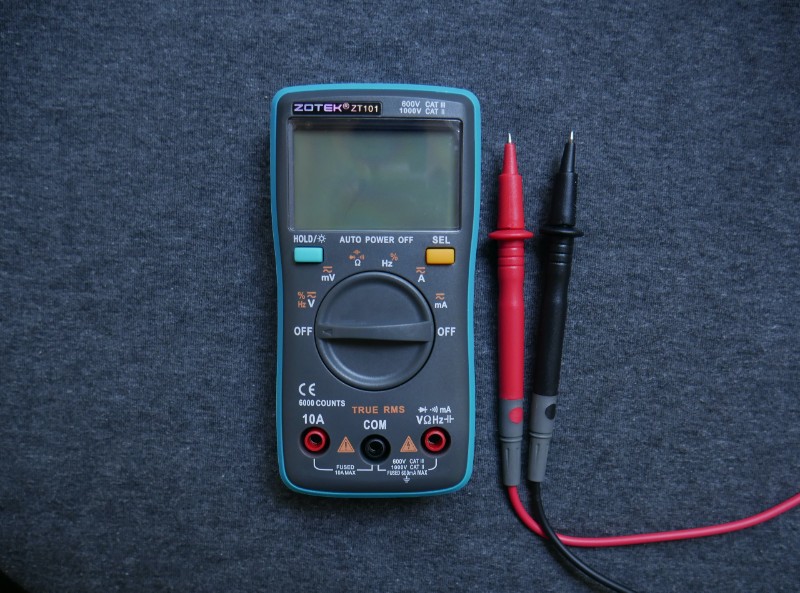The control module is one of the most important components of an automobile. Like many other components of a car, the control module requires power to function, and this power is provided by the car battery. But is the control module voltage the same as the battery voltage? We look into this and more in this article.
Control module voltage is the battery voltage minus any voltage drop due to the wiring. The battery is responsible for supplying the power that the vehicle needs to operate, while the control module oversees important engine functions.
Both the control module and battery are important components of the vehicle. Below, we’ll discuss these very two important component and their voltage requirements. Continue reading to learn more.
Understanding The Volts In A Car Battery
Most automobiles use a 12-volt battery, so when we are discussing car voltage batteries, we are referring to 12V batteries. And while most batteries are rated 12V, the reality is that most car batteries can range anywhere between 12.6 to 14.4 V. We’ll explain the reason for this below.
When your car is switched off, the battery is essentially at rest, and the voltage taken is referred to as “resting voltage.” You can easily measure the voltage of a battery by using a voltmeter. When you start the engine, the voltage of the battery increases to anywhere between 13.5 and 14.5, depending on your vehicle.
The starter draws current from the battery and converts the electrical energy to mechanical energy to crank the engine and kickstart the combustion process. Also, the voltage of the battery is boosted by the alternator.
It’s worth mentioning that the alternator recharges the battery to supply extra power as the car operates. And this is why the battery voltage is higher when the engine is running compared to when the battery is at rest.
Understanding The Engine Control Module
The Engine Control Module (ECM), also referred to as the Engine Control Unit (ECU), is a component that helps ensure your vehicle performs optimally. The ECM is essentially a computer and comes equipped with a microprocessor that receives, interprets, and reacts to the various information it receives from the several sensors in the car. You may already know that a car has several sensors. Information from these sensors is sent to the ECU for analysis and feedback as they occur.
Most ECUs aren’t actually made by car manufacturers. It’s common for manufacturers to source ECUs externally and then customize it to suit a particular car model’s specifications. This is more convenient for many manufacturers instead of producing their own ECUs. After all, why produce their own control module when they can easily configure it to fit different car specifications?
Control Module Voltage vs. Battery Voltage
The battery voltage depends on whether the engine is running or not. If the car is at rest and the engine is off, the battery voltage will be 12 V. But when the engine is running, the battery voltage will increase.
Control module voltage is the battery voltage minus any voltage drop due to wiring between the battery and the control module. A system of wires runs from the battery to the control module, and there will be a voltage drop before the current reaches the ECU.

How to Measure Car Battery Voltage
You can measure the voltage of your car battery with the help of a multimeter. A multimeter is somewhat of a jack of all trades as it can measure resistance, current, and voltage. When it comes to multimeters, you have the option of choosing between a dialog and a digital multimeter. Digital multimeters are becoming increasingly popular as they are convenient to use. The readings are displayed on a small screen.
Multimeters come with black and red lead. The red lead is connected to the positive terminal of the battery, while the black lead is connected to the negative terminal. It’s important you set the meter to DC voltage. Check if your multimeter has increments. If it has, set it higher than the voltage you are setting. Since you are testing for battery voltage which we know is between 12 to 14V, you’ll have to set the voltage higher than this.
When testing a battery, you should know that a bad battery can even appear to have full voltage. To know the actual voltage of the battery, you’ll have to test the battery under load.
How To Test A Car Battery With A Multimeter
Start by setting your multimeter to DC voltage and adjust the voltage to 20 DC volts. Then, press each probe of the multimeter to the correct battery terminals. Check the reading of the multimeter. If the battery is in good condition, it should be at or very close to 12 V. If the voltage is below 12 V, then the battery is immediately suspect.
It’s also a good idea to check the battery voltage when the engine is running. Turn the vehicle’s key to the run position and check the reading on the multimeter. The battery voltage should increase in this position.
Signs Of A Bad ECU
There are many signs that may indicate that your ECU is not functioning properly. One of the easiest and most noticeable signs is when the check engine light illuminates the dashboard. In truth, there are many reasons why the check engine light may come on. So, you’ll need to carry out a diagnosis and find out the underlying problem.
When the engine consistently misfires or stalls, it could also be an indication of a problem with the ECU. This is usually due to the control module feeding false data to the sensors, and this will affect the performance of the vehicle.
A malfunctioning ECU will also result in bad gas mileage. The control module plays a part in the combustion process as it determines how much fuel is sent to the combustion chamber. The correct ratio is needed for a proper combustion process. And if this ratio is off, it will affect the gas mileage.

